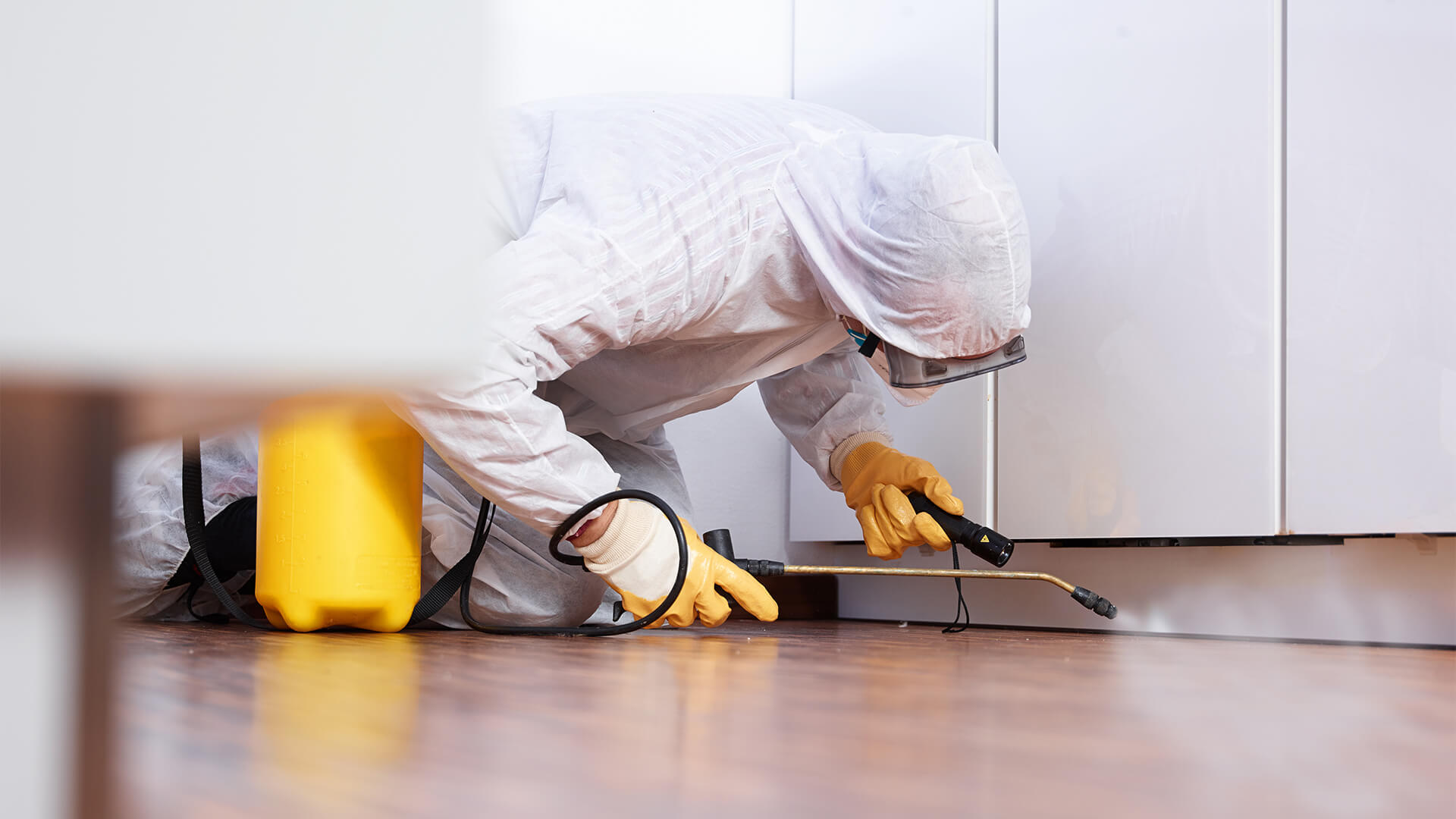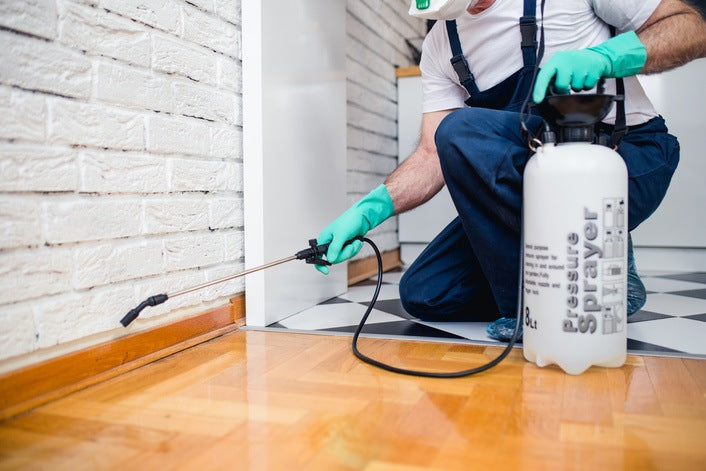Discover the Power of Pest Control Orem Utah Specialists: Relax Easy Tonight
Discover the Power of Pest Control Orem Utah Specialists: Relax Easy Tonight
Blog Article
Unveiling the Numerous Kinds of Insect Control Solutions to Address Different Infestations
In the world of parasite control, a myriad of services exists to deal with the diverse range of invasions that can plague homes, businesses, and agricultural setups. As we dive into the nuances of these bug control solutions, a deeper understanding of their efficiency and applicability arises, shedding light on the significance of selecting the appropriate method for each special parasite challenge.
Chemical Insect Control Techniques
Chemical parasite control methods involve the use of certain chemicals to avoid or remove bug problems in a targeted manner. These methods are typically utilized by bug control specialists to resolve a variety of pests, including bugs, rodents, and other unwanted organisms. The chemicals utilized in these techniques are developed to successfully get rid of bugs while decreasing injury to human beings, pet dogs, and the setting.

Another extensively made use of chemical parasite control technique is rodenticides, which are especially created to remove rodent populaces. These chemicals are commonly put in bait stations or catches to draw in and kill rodents, aiding to regulate invasions and avoid damages to frameworks and food materials. When using chemical pest control approaches, it is necessary to comply with safety standards and guidelines to guarantee effective and liable bug management.

Biological Pest Control Solutions
In contrast to making use of certain chemicals for targeted insect obliteration, biological parasite control options harness all-natural predators, bloodsuckers, or pathogens to take care of insect populaces efficiently. This eco friendly technique offers a lasting and long-term solution to pest invasions without causing damage to valuable insects, pets, or the ecosystem.
Biological parasite control methods include presenting natural enemies of the target bug species into the afflicted location. These natural enemies, such as ladybugs, parasitical wasps, nematodes, and fungis, exploit or infect the bugs, inevitably decreasing their populations. By making use of the all-natural behaviors and interactions of these organisms, organic control can properly suppress pest numbers and stop additional damage to gardens, structures, or crops.
One trick benefit of organic parasite control is its ability to target specific insects while lessening damage to non-target microorganisms. Furthermore, this approach can be incorporated with various other bug monitoring approaches to develop a thorough and lasting strategy to pest control - Pest Control Orem Utah. Via making use of organic agents, insect populations can be managed efficiently and with minimal ecological influence
Mechanical Parasite Control Strategies
Carrying out mechanical bug control methods involves utilizing physical approaches to eliminate and manage parasite problems. These methods provide a non-chemical approach to pest management, making them an eco friendly option. One usual mechanical technique is using catches, which are made to catch and eliminate parasites like insects and rats. Traps can be positioned tactically around the infested location to target details parasites without harming various other wild animals.
Another reliable mechanical insect control strategy is exclusion, where obstacles such as displays, internet, or sealers are used to avoid parasites from going into structures or specific areas. By enclosing access points, bugs are unable to get into and develop themselves, decreasing the demand for chemical interventions.
Moreover, physical elimination methods like vacuuming or hand-picking insects can be used for smaller invasions. This hands-on strategy can be particularly beneficial for taking care of bugs in yards or homes without resorting to chemical therapies. Generally, mechanical parasite control techniques supply a targeted and lasting remedy for pest administration.
All-natural and Organic Pest Remedies
Having actually checked out mechanical insect control strategies, the emphasis now shifts to the world of natural and natural parasite treatments, providing alternative techniques for ecologically friendly parasite monitoring. Natural parasite control includes using living microorganisms, such as predators, bloodsuckers, and microorganisms, to regulate parasite populaces.

Integrated Parasite Monitoring Strategies
Integrated Pest Management Techniques focus on integrating several insect control techniques to successfully and sustainably handle insect populations. This method integrates various techniques such as biological control, environment adjustment, adjustment of cultural techniques, and the usage of immune ranges. By using a combination of methods, Integrated Pest Monitoring (IPM) intends to reduce the use of chemical pesticides while still effectively controlling parasites.
One trick element of IPM is the emphasis on avoidance. By using positive measures such as regular monitoring, correct cleanliness, and exclusion approaches, the objective is to avoid pest problems before they become a substantial issue. Additionally, IPM strategies focus on the use of safe or less hazardous control methods, focusing on the long-lasting wellness and environmental effect of parasite management methods.
In addition, IPM considers the certain demands of each circumstance, tailoring control methods to match the unique qualities of the insect problem. This targeted method not just ensures reliable bug control but also advertises sustainability and ecological obligation in parasite management methods.
Conclusion
To conclude, there are numerous types of bug control solutions offered to attend to various infestations. Chemical techniques entail the use of pesticides, while organic remedies utilize natural predators. Mechanical strategies consist of traps and barriers, while organic and natural treatments utilize safe materials. Integrated pest administration integrates numerous approaches for effective control. It is necessary to think about the certain pest issue and environmental impact when selecting an insect control option.

These approaches are frequently employed by parasite control experts to deal with a wide array of pests, including pests, rodents, and other undesirable organisms. When making use of chemical insect control methods, it is necessary to comply with safety and directory security guidelines and laws to make sure responsible and efficient pest administration.
Having checked out mechanical pest control methods, the focus now changes to the realm of organic and all-natural insect solutions, offering alternate approaches for ecologically pleasant insect monitoring.Integrated Pest Administration Strategies focus on incorporating multiple insect control approaches to effectively and sustainably handle parasite populations. her latest blog By using a mix of methods, Integrated Insect Monitoring (IPM) intends to minimize the use of chemical pesticides while still successfully regulating pests.
Report this page